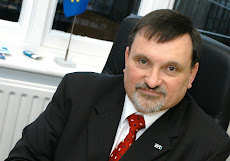Developing a Second String
One of the things I thank the RAF for, other than allowing me to throw their very expensive aeroplanes around the sky at 18 years of age, is my belief in ‘Secondary Duties’. Let me explain.
As a young pilot I was invited to the boss's office (euphemism for ‘Osborne – get your ass in here’) and told that I had been chosen to have meteorology as my Secondary Duty. In those days all officers had their one specialisation (what they were employed to do) and a secondary specialisation. The notion was, in my case, if the Squadron was called away with only limited support, I would be responsible for interpreting and reporting on the weather. Similarly, others were responsible for weaponry, personnel matters, rations etc. It made me study the weather, report on the weather at crew briefings. It has given me a lifelong fascination for everything meteorological.
I have transferred this thinking into commercial life by always giving my ‘Rising Stars’ a secondary duty to perform – skilling them for their new area of responsibility and challenging them to regularly feed back on their progress at team meetings and praising them accordingly.
To give you a specific … PR is always a good one. Why not appoint a member of staff to be responsible for collecting press opportunities. I don’t necessarily mean they have to write anything initially simply that they should become the collection point for good stories. If you have a point of contact (one person), everybody else knows who to tell when a client says, “That was a superb job, well done”. The responsible person can then broker a press comment or testimonial and pass it on to PR agents or web developers. Progressively people become so interested that they start writing releases, liaising with the journalists and opening their own PR agency (well it could happen).
“Ah,” I hear the doubters call, “But it will distract them from their core purpose; putting money on my bottom line!” Well, the reality is that it won’t - it will engage them further with the business, give them another spin on facets of their work and give them something else to excel at in the eyes of their peers.
The RAF was especially sadistic and as soon as you got to be good at one job, they took it off you, gave it to someone else and gave you something completely different – it certainly made for a good breadth of skills and widened your promotion potential.
If you sit and think about it there are a whole host of things that the average MD has to do that a ‘Second Stringer’ could do the leg work for – now that is productive delegation!
Gareth




